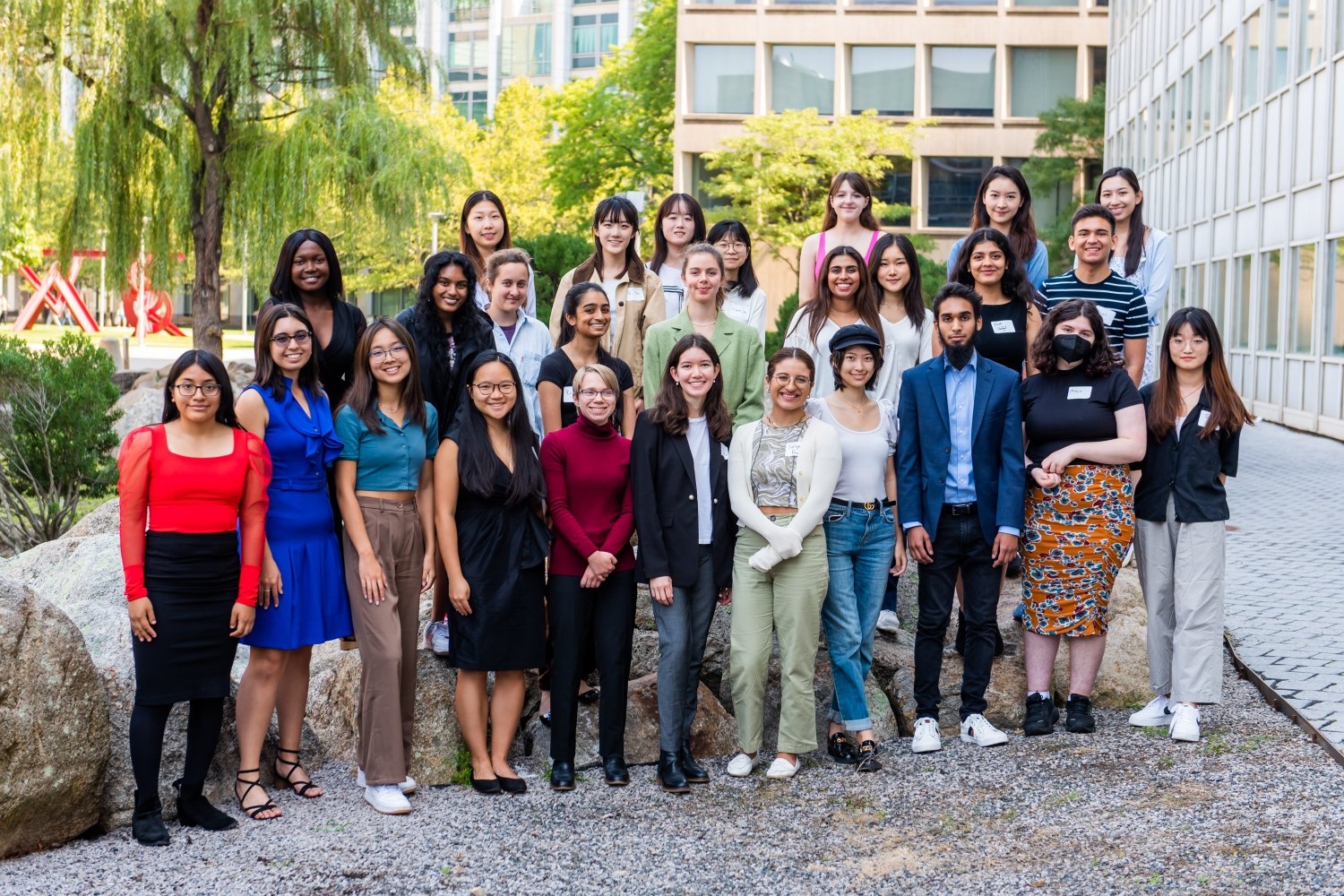

Taking what they learned conceptually about AI and Machine Learning (ML) this year, students from across the Greater Boston area had the opportunity to apply their new skills to real-world industry projects as part of an experiential learning opportunity offered by Break Through Tech AI at MIT.
Break Through Tech AI, hosted by the MIT Schwarzman School of Computing, is an experimental program that aims to bridge the talent gap of women and underrepresented genders in computing fields by providing skill-based training, industry-relevant portfolios, and mentoring to undergraduates in regional metropolitan areas in order to make it More competitive for positions in data science, machine learning, and artificial intelligence.
“Programs like Break Through Tech AI give us opportunities to connect with other students and other institutions, and allow us to bring MIT’s values of diversity, equity, and inclusion in learning and application into the spaces we own,” says Alana Anderson. Associate Dean for Diversity, Equity, and Inclusion at the MIT Schwarzman School of Computing.
The inaugural class of 33 undergraduate students from 18 schools in the Greater Boston area, including Salem State University, Smith College, and Brandeis University, began the free 18-month program last summer with an eight-week online skills-based course to learn the basics of intelligence. artificial and machine learning. Then the students broke into small groups in the fall to collaborate on six machine learning challenge projects submitted to them by MathWorks, the MIT-IBM Watson AI Lab, and Replicate. Students set aside five or more hours each week to meet with their teams, teaching assistants, and project advisors, including once a month at MIT, while juggling their regular academic course load with other daily activities and responsibilities.
The challenges gave undergraduates a chance to help contribute to actual projects industrial organizations are working on and put their machine learning skills to the test. Members from each organization also acted as consultants for the project, providing encouragement and guidance to the teams throughout.
“Students gain domain experience by working closely with project advisors,” says Aude Oliva, director of strategic industrial engagement at the MIT Schwarzman College of Computing and MIT director of the MIT-IBM Watson AI Lab. “These projects will be an addition to their machine learning portfolio that they can share as a working example when they are ready to apply for an AI job.”
Over the course of 15 weeks, the teams sifted through real-world, large-scale datasets to train, test, and evaluate machine learning models in a variety of contexts.
In December, students celebrated the fruits of their labor at a showcase event at MIT where all six teams gave final presentations on their AI projects. The projects not only allowed the students to build their AI and machine learning expertise, but also helped “improve their knowledge base and skills in presenting their work to both technical and non-technical audiences,” says Oliva.
For the traffic data analysis project, students were trained on MATLAB, a numerical programming and computing platform developed by MathWorks, to create a model that enables decision-making in autonomous driving by predicting future vehicle trajectories. “It’s important to realize that AI is not that smart. It’s only as smart as you make it and that’s exactly what we tried to do,” Brandeis University student Srishti Nautiyal said as she introduced her team’s project to the audience, with companies already making autonomous vehicles out of aircraft. To make trucks a reality, Nutella, a physicist and mathematician, shared that her team was also very excited about considering the technology’s ethical issues in their model for the safety of passengers, drivers, and pedestrians.
Using census data to train a model can be challenging because it is often messy and full of holes. In a project on algorithmic fairness for the MIT-IBM Watson AI Lab, the team’s toughest task was cleaning up mountains of unstructured data in a way that they could gain insights from. The project—which aims to create a view of fairness applied to a real dataset to evaluate and compare the effectiveness of different fairness interventions and fair metrics learning techniques—could eventually serve as an educational resource for data scientists interested in learning about fairness in AI and using it in their work, as well as to promote the practice of evaluating ethical implications. For machine learning models in industry.
Other challenge projects included an ML-assisted whiteboard for non-technical people to interact with off-the-shelf machine learning models, and a sign language recognition model to help disabled people communicate with others. A team working on a visual language app has included more than 50 languages in their model to increase access for the millions of visually impaired people around the world. According to the team, similar apps on the market currently only offer up to 23 languages.
Throughout the semester, the students persisted and showed their determination in order to cross the finish line on their projects. With final presentations marking the conclusion of the fall semester, students will return to MIT in the spring to continue their journey into breaking through technology for AI to tackle another round of AI projects. This time, students will work with Google on new machine learning challenges that will enable them to hone their AI skills further with an eye on starting a successful career in AI.
